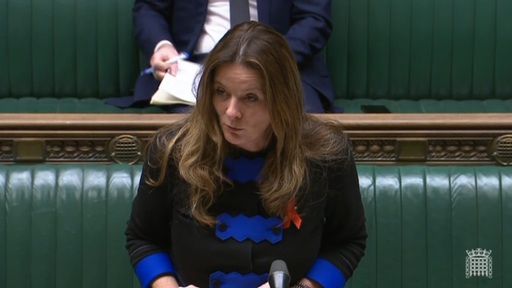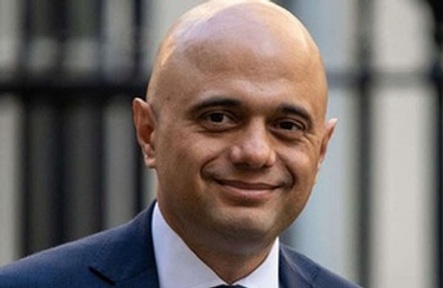Social care white paper offers to help people live at home longer but fails to raise pay
Care minister Gillian Keegan has unveiled a government White Paper that promises more funded stairlifts and wet rooms for people needing care and £300m to help councils provide supported housing to ensure people can live ‘as independently as possible’ at home.

Commenting that reform of social care “has been ducked for far too long”, Ms Keegan said of the 10-year plan for social care “we will do whatever it takes” to fix social care.
'Give more people the choice' to live in own homes
The White Paper highlighted that the government is ‘making every decision about care a decision about housing'.
‘Our ambition is to give more people the choice to live independently and healthily in their own homes for longer.’
£210m for specialised housing fund
Ms Keegan told MPs a new service will make minor repairs and changes to people’s homes to help them remain independent at home and an increase to the upper limit of the Disabled Facilities Grant for home adaptations such as stairlifts, wet rooms and home technologies will allow people to live where they want.
The government will also increase the supply of specialised housing for older people and those with a physical disability, learning disability, autism or mental ill-health with £210m investment in the Care and Support Specialised Housing (CASSH) Fund for the period 2022 to 2023 through to 2024 to 2025.
In another bid to help people to live independently, the government is accelerating the digitisation of social care with a £150m fund to make the most of technology to improve care.
The care minister said a new £30m ‘Innovative Models of Care Programme’ will help local authorities find innovative ways of delivering care in the community and improve the choice of care available.
Secretary of State for Health and Social Care, Sajid Javid, was not present when Gillian Keegan unveiled the white paper in the House of Commons. Gillian Keegan called it “a product of years of work” but it failed to include funding to raise the low pay of care workers. The average wage is £9.01 an hour in the independent care sector.
Over the next three years, the government will invest at least £500m to support the professional development and mental health and wellbeing of the workforce.
A new professional development plan for the care workforce was announced to improve social care and make caring an attractive career. This includes setting out a new framework with the skills and behaviours needed at each level of the social care workforce, and providing hundreds of thousands of training places and qualifications for staff to develop their skills.
Gillian Keegan said a 40 per cent turnover in the care sector “is not sustainable”.
Funding will be available for portable Care Certificates to ensure care workers do not need to repeat Care Certificate training when moving roles. New digital social care workforce hub and skills ‘passports’ will be created to easily identify individuals as working in care and give them ‘a portable record of training and development’.
The government also announced it will fund accredited Level 5 diplomas for registered managers who do not hold relevant formal qualifications. It also promised to expand the roll-out of the care workforce Race Equality Standard to ensure staff from ethnic minority backgrounds are treated equally.

Shadow care minister: 'Is that it?'
The care minister said the government will invest up to £25m to support unpaid carers but Labour’s shadow minister for care Liz Kendall, responded to the White Paper’s unveiling in parliament, by asking: “Is that it?”
“Ministers have utterly failed to deal with the immediate pressure facing social care”. She told the minister, the White Paper brought only £1.60 more for each unpaid carer a year.
With 400,000 older and disabled people on waiting lists for care and 1.5m hours of commissioned home care undelivered between August and October 2021 due to staff shortages, Ms Kendall asked: “Where was the plan to end waiting lists for care?”
“Where was the long-term strategy", she pressed on, to transform the pay of care workers?
Ms Keegan announced a new national website called ‘Transforming Social Care’ would help explain the White Paper’s contents but Ms Kendall asked her “How will some kind of website pay care workers bills?”
Ms Kendall also asked why the social care plan was separate from the NHS plan, if more integration was needed. Unlike the NHS which is a public body, Ms Keegan replied, social care has over 18,000 private business and “that’s why we have a different strategy” for social care.
Care cap: 'Working class dementia tax'
The minister said the integration of health and social care will be the subject of another white paper being introduced “early next year”. Ms Keegan also said the government was introducing a care cap on personal care costs of £86,000 to give people “peace of mind”. She said: “No one will be worse off compared to the current system and many, many people will be better off.”
Labour leader Keir Starmer during PMQs (1 December) earlier that day told Prime Minister Boris Johnson that reforms including the government’s social care cap are a “working class dementia tax”. Mr Johnson in reply called him "Captain Hindsight" and repeated his mantra: "We’re fixing social care".
Ex-health secretary Jeremy Hunt said the White Paper was “three steps forward and two steps back” and had made it “very hard to see an end” to the care workforce crisis.
The care minister was asked by Dr Phillipa Whitford (MP Central Ayshire, Scottish National Party), if she would introduce free personal care in England, consider raising the pay of care workers to £10 an hour and ensure the health and care visa includes care workers. Ms Keegan replied: “We do have a visa route for senior care workers.”
At the Spending Review in October, the government announced £5.4 billion over three years for adult social care. It was confirmed that £1.7bn of this funding would be for improvements in the adult social care system in England.
Some £3.6 billion will pay for the cap on care costs, the extension to means test, and will support progress towards local authorities paying 'a fair cost of care'. This investment in adult social care is being funded from the new Health and Social Care Levy.
Charity: White Paper not a F1 car but a ‘saloon car at best’
Dr Rhidian Hughes, chief executive of the Voluntary Organisations Disability Group (VODG), said: “Sadly, government’s ambitions to improve the lot of care workers falls far short today with no measurable impact on care worker take home pay.”
Caroline Abrahams, charity director of Age UK, said: "Rather than the formula one vehicle that was required, the Paper is an underpowered saloon car at best.
"Meanwhile, Rome burns. Chronic workforce shortages are the biggest concern and seem to be getting worse, with uncompetitive pay the main culprit. If COVID surges this winter because of the new variant these workforce problems will be magnified.”
'Not game-changing'
Dr Jane Townson, the chief executive of the Homecare Association, said: "It is very encouraging that home-based support and care is at the heart of the vision for social care articulated in the Adult Social Care Reform White Paper. This is what we wanted to see.
"Whilst the proposals contain welcome additional funding for a range of areas... they do not address underlying systemic issues."
Highlighting that home care receives only four per cent of the amount invested in the NHS, she said: "The £500m allocated for workforce equates to £111 per person per year. All additional funding is positive but this is not game-changing and the proposals are unlikely to have a significant impact on recruitment and retention."
"We call on the government to walk the talk on levelling up and provide sustainable funding for community and social care."
Latest News
 29-Jul-24
Dementia Bus gives carehome.co.uk staff insight into life with dementia
29-Jul-24
Dementia Bus gives carehome.co.uk staff insight into life with dementia
 27-Jul-23
UK's top home care agencies in 2023 revealed
27-Jul-23
UK's top home care agencies in 2023 revealed
 30-Nov-22
A quarter of older people keep their falls secret from family
30-Nov-22
A quarter of older people keep their falls secret from family
 29-Nov-22
'Covid-19 has not gone away' say terminally ill
29-Nov-22
'Covid-19 has not gone away' say terminally ill
 28-Nov-22
IT consultant who received poor care opens 'compassionate' home care business
28-Nov-22
IT consultant who received poor care opens 'compassionate' home care business